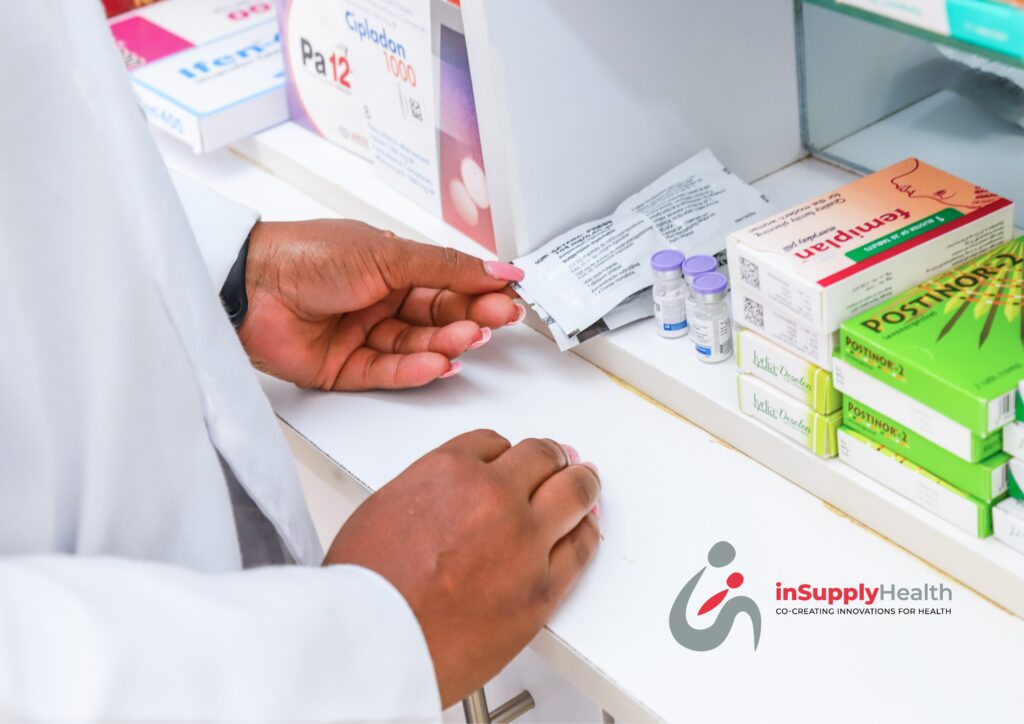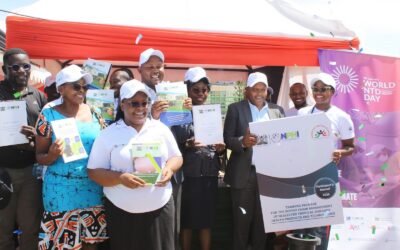
As we mark International Women’s Month 2025 under the theme Accelerate Action, we are reminded of the power of our collective efforts in driving progress toward gender equity and expanding access to safe, quality, and responsive family planning services. As of 2022, Kenya had achieved a 58% modern contraceptive prevalence rate under the government’s leadership and in alignment with multiple stakeholders, including funders, implementers, health workers, and community leaders.
Family planning is more than a health service—it is a socio-economic necessity that enables governments to allocate resources effectively for sustainable development. Ensuring women have control over their reproductive health strengthens workforce participation, educational attainment, and economic growth. IWD provides an opportunity to reflect on the steps Kenya needs to undertake to continue expanding family planning access in the face of current developments, such as shifts in donor funding and the social health insurance fund implementation. Kenya’s vision for family planning by 2030 is to achieve universal access with zero unmet need, ensuring every woman can obtain affordable contraceptives anytime, anywhere, from trusted providers. This is fundamental to realizing Vision 2030, which seeks to position Kenya as a globally competitive and prosperous nation.
While significant progress has been made, gaps remain between what women need and what they can access. Addressing these requires deliberate action to meet the needs of women of all ages.
Understanding and Overcoming Financing Gaps and Barriers
As Kenya transitions to a middle-income country, increased domestic government spending is needed to complement donor contributions and consumer spending. To achieve universal family planning access by 2030, we must address financing barriers and reduce donor dependence. National and county governments should integrate budget lines for contraceptive procurement and family planning programs, treating them as essential health expenditures. Exploring financing options such as debt swaps, health sector bonds, insurance coverage, and primary healthcare packages can sustain these programs.
The Ministry of Health Total Market Approach for Family Planning seeks to expand access by recognizing consumer spending, especially for women who prioritize discretion and convenience. An increasing segment of women prefer private pharmacies over public facilities for personalized care, confidentiality, and rapid services. Scaling up pharmacies’ capacity to provide quality family planning through training, accreditation, and resources is essential for equitable service delivery.
Family Planning as a Socio-Economic Imperative
In 2005, Kenya established a budget line for contraceptive procurement, and by 2021, in partnership with development partners, was covering nearly 50% of procurement costs. However, since then, progress has been reversed, and donor dependence has risen to almost 99%. Critical questions remain: Why does Kenya still rely heavily on external funding for essential services like family planning? Why has political will appear to have declined? Where are the voices from civil society?
To achieve self-reliance, national and county budgets need to be realigned to include dedicated domestic funding for family planning products and programs. Sustained investment is not just about health—it is an economic and social imperative that impacts national development.
Expanding Access and Enhancing Convenience
Pharmacies are often the first point of contact for many Kenyans seeking healthcare, yet family planning services remain underutilized in these settings. The Ministry of Health has established guidelines and training for pharmacies to expand family planning services by offering injectables and self-injections. Investments to strengthen pharmacies nationwide with essential tools and skills will increase safe and convenient family planning access and enhance reproductive health autonomy.
Women seeking family planning services emphasize the importance of privacy, discretion, and convenience. Self-injection methods, for example, allow them to manage reproductive health discreetly, especially in communities where stigma persists. Pharmacies offer trusted, personalized services with shorter wait times, flexible hours, and a comfortable environment. A growing segment of women prefer pharmacies for the privacy and detailed guidance they receive.
Expanding pharmacy-based family planning services can bridge access gaps while empowering women with greater autonomy. Governments and private providers can prioritize this approach by integrating pharmacies into national strategies, ensuring affordability, and improving financing models to support equitable service delivery.
Ensuring Accountability and Sustainability
Efficient resource use is essential for increasing domestic financing for family planning. Strengthening fiscal management and institutionalizing robust procurement and supply chain systems in both the public and private sectors will optimize available funds for expanding family planning access.
Key questions to address include: How should we structure service costs for different segments of women to ensure access while maintaining cost recovery for sustainable reinvestment? How can policymakers enhance efficiency and transparency to curb corruption and ensure funds are used as intended? Can our redesigned social health insurance system be operationalized to achieve national family planning goals? Do we have sufficient accountability mechanisms to direct tax revenue toward development objectives?
Shaping Our Own Narrative
The shifting donor landscape is a wake-up call for Africans to shape and develop solutions suited to our needs and priorities. Business as usual is no longer an option. Self-reliance is an urgent priority.
To accelerate gender equity and family planning progress, we must lead in policy development, financing models, and implementation strategies tailored to Kenya’s context. Every stakeholder has a role to play in driving change.
Change begins with a single voice daring to chart a new path. Imagine the impact if we all raised our voices in unison to advocate for a better future. Now is the time for bold, decisive action that empowers women and safeguards their reproductive rights.
If we truly believe in gender equality, we must act with urgency and purpose. The future of our women and our nation depends on it.
The author Yasmin Chandani is the CEO and founder, inSupply Health


